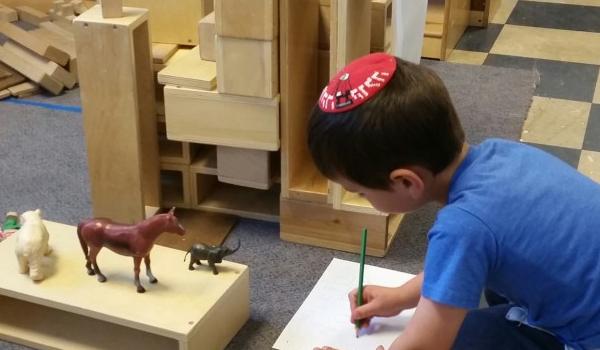New research from outside the world of Jewish education offers rich and compelling insight for funders, researchers, and practitioners about the costs associated with effective early childhood education (ECE). How can the field make ECE accessible for more families? How can the field better develop and support ECE educators? These questions and others are answered in new studies and analyses:
1) Achieving Kindergarten Readiness for All Our Children: A Funder's Guide to Early Childhood Development from Birth to Five, The Bridgespan Group, October 2015. With a recognition that the U.S. vastly underinvests in effective early childhood programs, this study offers numerous specific, evidence-based public investment opportunities that private donors and government can pursue to impact the critical ECE period from pregnancy to age three.
2) The Early Childhood Challenge for Philanthropists, Stanford Social Innovation Review, October 2015. This analysis by authors of the study above focuses on five specific categories of philanthropic investment that can dramatically improve kindergarten readiness for at-risk children. The authors also point to promising high-return strategies that pioneering philanthropies are currently implementing.
3) Preparing Low-Income Latino Children for Kindergarten and Beyond: How Children in Miami’s Publicly-Funded Preschool Programs Fare, National Research Center on Hispanic Children and Families, September 2015. This study addresses questions regarding the influence of early care and education programs on Latino children’s early academic development, by analyzing data from the Miami School Readiness Project (MSRP) in Miami-Dade County, Florida.
4) Overcoming Financial Barriers to Expanding High-Quality Early Care & Education in Southeastern Pennsylvania, Nonprofit Finance Fund, July 2015. This report takes a close look at nonprofit ECE programs serving the Philadelphia region’s most vulnerable children, in order to highlight the key financial, business, and systemic barriers to delivering high-quality ECE programs. The report builds on Nonprofit Finance Fund’s multi-pronged study, started in 2013, that examined 147 ECE providers to assess the financial challenges of operating high-quality ECE programs.
5) How Jews Choose: A Study of Early Childhood Decisions Among Jewish Parents in Greater Boston, Combined Jewish Philanthropies of Greater Boston (CJP), August 2015. A task force of Jewish early childhood professionals convened to acquire a better understanding of how local families raising Jewish children choose preschools. The task force worked with Professor Mark I. Rosen of Brandeis University to design a study to answer this question. Over 1,400 families completed a comprehensive survey, and the data were analyzed to compare four distinct groups.


